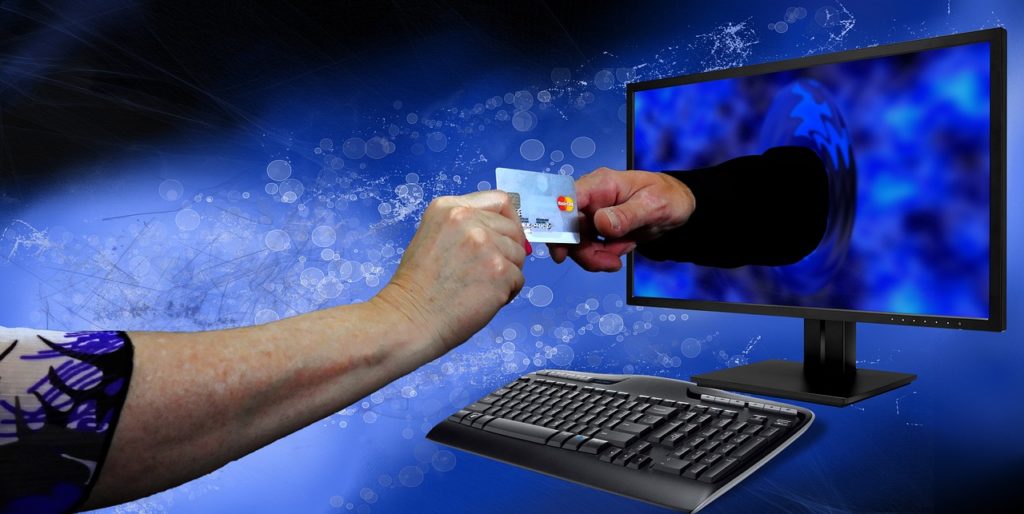Everything you need to know about how cyber threats can affect you and what you can do to protect your financial assets can affect you and what you can do to protect your financial assets.
Q1 hedge fund letters, conference, scoops etc, Also read Lear Capital
While online shopping has revolutionized how we buy everything from groceries to the latest shoes, that also means handing over your vital credit card information with every purchase. Data breaches have become far too common, so you need to know how to protect yourself in our ever-growing cyber world.
What am I protecting myself from?
It’s scary to think about, but identity theft can happen to anyone, and certain parts of the country are more prone to credit card fraud and identity theft than others. If your personal information falls into the wrong hands, modern day criminals can use it to take out loans in your name, empty your bank accounts, or even tap into your social security benefits. Resolving these issues is a long and tedious process, so taking caution can save you major headaches should this ever happen to you.
While it may seem obvious to not give a stranger your social security number, being vigilant while online is just as important. You wouldn’t leave your wallet sitting out at a crowded bar, so use good judgment with any online marketplace.
Aren’t my cards protected?
Yes, usually, and many cards have security benefits you can see (like your card number, expiration date and CVV code) to guide your bank in approving your purchases. Also, sometimes you have to give your zip code at a kiosk (and certainly when checking out online). These are all authentication methods banks use to prevent the wrong people from using your cards.
Then there are the security measures you can’t see. Banks use sophisticated algorithms and technology to monitor their customers spending habits and combat fraud. If they feel a transaction is suspicious, they’ll flag it. And while having your card declined on a legitimate transaction can be frustrating, the alternative is much worse.
What can I do?
Of course, not every website is out to get you. But even reliable companies have had data breaches, so simply trusting a familiar company isn’t enough.
Some ways to avoid typing in your credit card details is to use alternate payment methods. You probably have a mobile wallet like PayPal account, but you should also use Chase Pay or Masterpass when available. No card numbers or other details are exchanged.
Also consider using virtual account numbers. Some banks like Citi can issue you a temporary card number when you’re logged onto their website good for one-time use. After you make your next purchase with it, that virtual account number becomes useless.
Another solution is using a payment app. As mobile shopping grows, more apps than ever allow you to check out on your smartphone using Apple Pay or Venmo where your credit card details are securely stored.
I’ve experienced fraud, now what?
The sooner you catch any type of fraud, the better. It’s in your bank’s best interest as well to help you uncover anything out of the ordinary.
- Notify your credit card company. They’ll monitor your account, send you a new card with a new account number, and you won’t be on the hook for fraudulent charges.
- Notify the banks where you keep you checking and savings accounts. If someone has your personal information, they could try to empty your accounts or transfer your money to another bank.
- If you have a mortgage or investment account, notify those institutions as well. You can never be too careful, so any company that also has your private details needs to know your identity may have been compromised.
- Alert the three major credit bureaus (Equifax, Experian and Transunion). They’ll put a freeze on your reports and not allow any new accounts to be opened. You should also check your credit reports to make sure all the history is yours.
Bottom Line
Cyber security is not something you should take lightly, but with a cautious attitude, hopefully you’ll never fall prey.
About Roman Shteyn
Roman Shteyn is the CEO and co-founder of RewardExpert.com — a free service that helps people maximize their miles and points to earn free travel. Roman has over two decades of experience in the credit industry and has helped decipher rewards programs for both businesses and consumers.
As a technology entrepreneur, Roman has helped fuel his company through rewards earned by savvy business spending. Consumer credit advocacy is his personal passion. A better informed public leads to more responsible use of credit cards, an area he has been involved in since the early ‘90s. As a consumer advocate, Roman frequently writes on credit-related issues, personal finance, small businesses trends, business travel, loyalty programs, and money-saving tips for both consumers and businesses.













